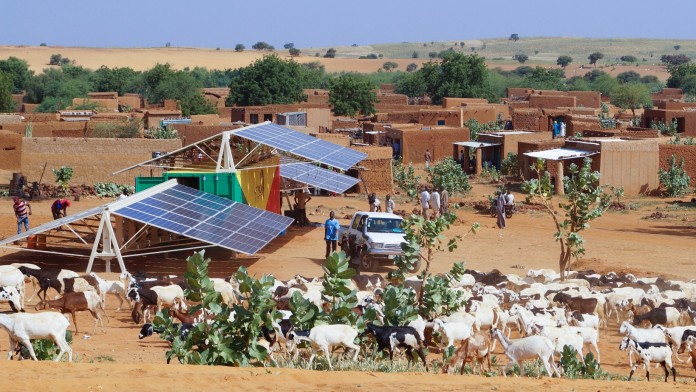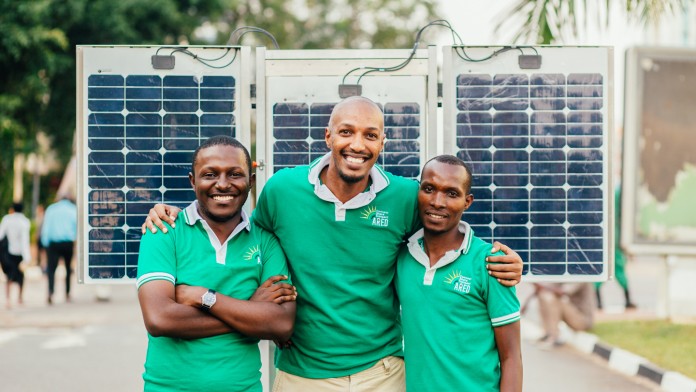News from 2017-12-22 / DEG
Smart solar systems for Africa
Would you walk five kilometres to the nearest generator just to have access to electricity? In many parts of Africa, such journeys are a part of everyday life. Until now, that is, because more and more new businesses are developing smart solutions that allow people with no home electricity supply to gain access to power.
DEG is financing these innovative ventures, for instance through the “Climate Partnerships with the Private Sector” programme. As part of the International Climate Initiative (IKI), it provides funds from the Germany Federal Ministry for the Environment, Nature Conservation, Building and Reactor Safety (BMUB) for climate-friendly projects, including in Niger and Rwanda.

Solar container lights up the evenings
Since late November 2017, a "solar container" has been in place at Amaloul Nomade in western Niger. This mobile photovoltaic unit is equipped with a 60-kWh battery and supplies power for the whole village, which is not connected to the national power grid. It was developed, built and installed by Africa GreenTec, a start-up from Hainburg in Hessen, with finance provided by DEG from BMUB funds.
Daytime temperatures in Amaloul Nomade can reach 45 degrees, so the unit helps villagers to work and relax in the cooler hours after the sun sets at 6 pm. Children now go to school in the early evening. Craftsmen can use electrically powered tools, improving their work. And for the first time, the village now has access to a satellite-based internet service.
For residents, the renewable energy supply is also cheaper, cleaner and quieter than using diesel generators. Deliveries of diesel, which were often late or subject to price rises, are no longer needed.

Mobile solar kiosks provide power and internet access
ARED is a company in Rwanda that operates small mobile solar kiosks. These convert the sun’s rays into electricity. Customers of the kiosks can charge their phones cheaply, use WiFi to access the internet, read the local news, pay their taxes and transfer money online.
Each new kiosk creates permanent jobs. The kiosks are often run by women, which enables them to be financially independent. ARED offers them several weeks of free training, during which it teaches them how to build contacts with customers and how to market the different services.
DEG financed the development of the prototype using funds provided by the BMUB. The solar kiosks are currently made in Germany. Over the medium term, however, the plan is to manufacture them locally, as well as to expand the business model to Uganda.

Share page
To share the content of this page with your network, click on one of the icons below.
Note on data protection: When you share content, your personal data is transferred to the selected network.
Data protection
Alternatively, you can also copy the short link: https://www.deginvest.de/s/endBZF67.BtwA
Copy link Link copied